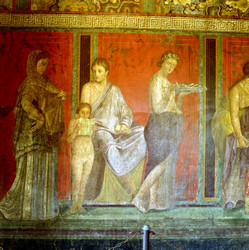Translating frugal Roman life to modern standards
The Romans made famous the concept of 'frugality' and the enormous value placed on acquiring material goods in a restrained manner. Their conduct and laws reflected this avoidance of waste, lavishness and extravagance. The concept has changed over time, but it might prove useful in addressing issues faced by the western world's capitalist economies. With this in mind, the EU-funded ECOFRUGAL (The economics of frugality between Ancient Rome and contemporary western society) project set out to examine the relationship between past and present ideas of frugality. Overall, the aim was to place frugality in the correct socioeconomic and political context and relate this to economic crises. Work began with an analysis of the Roman concepts of frugality and contrasting notions such as extravagance and wastefulness. A database was set up to present social models of material needs and desires in Rome and their relationship with conflicting values. The impact of frugal values on the economic and cultural landscape of Rome from the Archaic period to the Early Empire was assessed. The project then studied theories, definitions and arguments concerning frugality beginning from the 18th century. The focus was on ideas that have emerged in recent years that hint at a return to ancient Roman notions of frugality. Lastly, Roman values, behaviour and laws connected with frugality were compared to western society's notions during the 20th and 21st centuries. Outcomes have been published in several scientific journals. A monograph on Roman frugality and its role in modern thinking is scheduled to be published in a leading university press. It marks the first time this topic will be dealt with in such depth. ECOFRUGAL helped shed light on Roman frugality as it relates to today, and provided a much deeper understanding of the history of frugality in western culture. Supporting a return to Roman frugality, findings have implications for wasteful economic policies.







